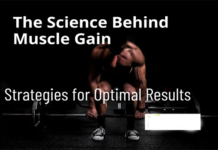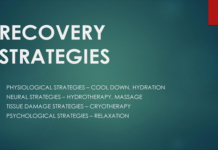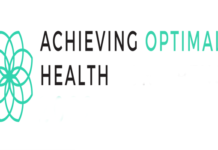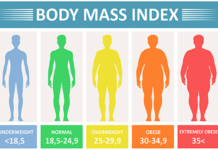Introduction:
Nutrition is the cornerstone of health achievement. Whether you aim to build muscle, lose fat, or enhance standard fitness and performance, what you devour plays a pivotal function in attaining your dreams. This complete guide explores the vital ideas of nutrition for health achievement, providing you with the know-how and equipment to optimize your eating regimen and maximize your effects.
Understanding Macronutrients:
a. Proteins:
- Importance for muscle restoration and growth.
- Sources: lean meats, fowl, fish, eggs, dairy, legumes, and plant-primarily based resources like tofu and tempeh.
- Recommended consumption is based totally on hobby level and desires.
B. Carbohydrates:
- Primary energy supply for bodily interest.
- Differentiating between uncomplicated and complicated carbohydrates.
- Timing carbohydrates for most excellent overall performance and restoration.
C. Fats:
- Essential for hormone manufacturing and absorption of fat-soluble nutrients.
- Differentiating between saturated, unsaturated, and trans fats.
- Incorporating healthful fats into your food regimen: nuts, seeds, avocados, and fatty fish.
- Micronutrients and Phytonutrients:
a. Vitamins:
- Importance of vitamins in various metabolic processes.
- Essential vitamins for fitness: Vitamin D, Vitamin C, and B-complex nutrients.
- Food resources and supplementation issues.
B. Minerals:
- Electrolytes and their position in hydration and muscle function.
- Minerals crucial for bone fitness: calcium, magnesium, and phosphorus.
- Meeting mineral desires through weight-reduction plan and ability supplementation.
C. Phytonutrients:
- Plant compounds with antioxidant and anti-inflammatory residences.
- Benefits of eating a lot of colourful fruits and vegetables.
- Incorporating phytonutrients for stepped-forward healing and typical health.
Hydration:
- Importance of hydration for overall performance and recovery.
- B. Calculating fluid wishes based on body weight and interest level.
- C. Electrolyte stability and replenishment techniques at some stage in exercise.
- D. Tips for staying safely hydrated at some point in the day.
Meal Timing and Frequency:
- Pre-exercise nutrition: fueling your body for the most suitable performance.
- B. Post-exercising nutrients: replenishing glycogen stores and helping muscle restore.
- C. The significance of regular meals and snacks for sustained power levels.
- D. Strategies for meal-making plans and coaching to aid your health goals.
Dietary Strategies for Specific Goals:
a. Muscle Building:
- Calculating protein desires for muscle synthesis.
- Importance of calorie surplus and nutrient timing.
- Incorporating the best carbohydrates and fats for strength and recovery.
B. Fat Loss:
- Creating a calorie deficit through weight loss plans and workouts.
- Strategies for controlling component sizes and coping with cravings.
- Emphasizing nutrient-dense meals to guide satiety and metabolism.
C. Performance Enhancement:
- Fine-tuning macronutrient ratios for endurance or power-based sports.
- Utilizing pre- and submit-workout nutrition techniques.
- Experimenting with supplementation for ergogenic effects.
Mindful Eating and Behavior Change:
- The function of mindfulness in improving eating behaviour and food choices.
- B. Strategies for overcoming emotional ingesting and cravings.
- C. Building sustainable behaviour for lengthy-time period fulfilment.
- D. Seeking aid from professionals or support businesses while wished.
Supplementation:
- It is essential to understand the role of dietary supplements in filling nutrient gaps.
- B. Key supplements for health fanatics: protein powder, creatine, branched-chain amino acids (BCAAs), and omega-3 fatty acids.
- C. Considerations for supplement excellent, dosage, and timing.
- D. It is essential to prioritize all ingredients over supplements whenever possible.
Personalization and Adaptation:
- Recognizing character differences in nutrient desires and tolerances.
- B. Experiment with unique nutritional techniques to locate what works nicely in your frame.
- C. Monitoring progress and making changes primarily based on feedback.
- D. Consulting with a registered dietitian or nutrient teacher for personalized steerage.
Managing Special Considerations:
a. Vegetarianism and Veganism:
- Ensuring adequate protein consumption and nutrient diversity.
- Supplement concerns for vegans, inclusive of nutrition B12 and iron.
- Plan balanced meals that meet each nutritional and moral need.
B. Food Allergies and Intolerances:
- Identifying trigger foods and finding appropriate options.
- Reading food labels and eating out competently.
- Working with a healthcare expert to control nutritional restrictions efficaciously.
C. Medical Conditions:
- Tailoring nutritional hints to manage diabetes, hypertension, or gastrointestinal disorders.
- Monitoring blood sugar levels and adjusting carbohydrate consumption are necessary for this reason.
- Collaborating with healthcare providers to optimize nutrient therapy and medicine control.
Long-Term Sustainability:
- Emphasizing a balanced and bendy method to vitamins.
- B. Build a fantastic dating with meals and take part in food without guilt.
- C. Incorporating occasional treats and indulgences while retaining typical nutritional best.
- D. Recognizing that health and fitness are lifelong journeys, requiring ongoing dedication and version.
Sustainable Eating Practices:
- Embracing sustainable consuming practices that prioritize both private health and environmental well-being.
- B. Choosing regionally sourced, seasonal foods when feasible to lessen carbon footprint.
- C. Reducing meal waste through meal planning, proper storage, and innovative use of leftovers.
- D. Supporting moral farming practices and sustainable meal production methods.
The Role of Sleep and Stress Management:
- Recognizing the effect of sleep and strain on nutritional selections and metabolism.
- B. Prioritizing great sleep to aid recovery, hormone stability, and standard fitness.
C. Implement pressure-reduction strategies, including mindfulness, meditation, or everyday bodily interest.
- D. Understanding how good enough rest and pressure management contribute to better food alternatives and adherence to nutrition dreams.
Social and Cultural Influences on Eating Habits:
- I am acknowledging the effect of social and cultural factors on nutritional options and behaviours.
- B. Navigating social gatherings and eating out whilst keeping dietary goals.
- C. Honoring cultural traditions and food rituals simultaneously as making mindful choices that align with health targets.
- D. Seeking guidance and know-how from friends, family, and community participants in pursuit of fitness and health goals.
Continuing Education and Growth:
- Recognizing that nutrient science is continuously evolving, new research may also emerge.
- B. Stay knowledgeable about the latest nutrition developments, studies, and evidence-based total guidelines.
- C. Continuing to refine and adapt nutritional techniques primarily based on non-public stories and evolving desires.
- D. Engaging in ongoing education through respectable resources, workshops, seminars, and professional improvement possibilities.
Celebrating Non-Scale Victories:
- We are shifting the focus from weight reduction or bodily appearance to different markers of fulfilment and proper well-being.
- B. Celebrating upgrades in strength levels, mood, electricity, persistence, and general best of lifestyles.
- C. Setting non-scale goals associated with health achievements, nutritional milestones, and private increase.
- D. Cultivating a fantastic attitude and self-compassion at some stage in the health adventure, no matter scale fluctuations or outside validation.
Building a Supportive Environment:
- Surrounding yourself with those who have similar health and health dreams can provide helpful guidance and motivation.
- B. Engaging in organization activities, fitness training, or online communities where you can hook up with like-minded people.
- C. Seeking responsible partners or mentors who can provide encouragement, steering, and duty.
- D. Creating a positive and supportive domestic environment by stocking up on nutritious foods, getting ready food collectively, and fostering a way of life of health and health within your household.
Conclusion:
Nutrition is not fueling your body; it’s approximately optimizing your health, overall performance, and everyday well-being. Knowing the essentials of nutrients and applying them to your weight loss plan could unlock your capacity and achieve health success. Remember, consistency and balance are critical, so try for development now, not perfection, and have a good time on the journey toward a more fit, stronger you.






















